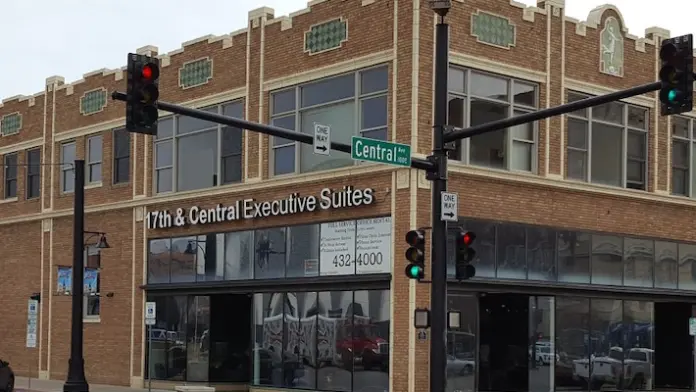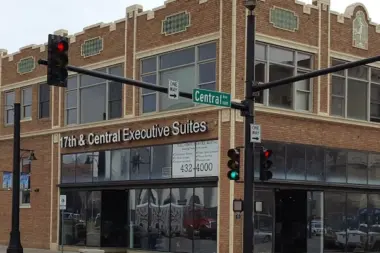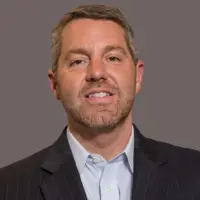About Bicycle Health Suboxone Clinic Wyoming
Located in Cheyenne, Wyoming, Bicycle Health is an addiction recovery facility that provides medication assisted treatment through telehealth services. In many cases, you can get your medication filled within the same day. The facility accepts payment for services through Medicaid and Medicare.
Online Appointments For More Convenience
Bicycle Health offers Suboxone treatment through their telehealth services to give you more convenience. You’ll have confidential video and phone calls with a medical provider through the facility’s mobile app. You won’t have to wait days for an in person appointment and you’ll spend less time driving to and from the clinic.
The treatment will be the same as it is in person with your doctor communicating with you about how your treatment is going and prescribing medications such as Suboxone and buprenorphine. The prescription will be sent electronically to your nearest pharmacy and be refilled either weekly, biweekly or monthly.
In addition to communicating with your doctor online, you’ll also be able to conduct your therapy sessions and participate in support groups online. The medical providers on staff can prescribe medications for mental health conditions contributing to your addiction such as anxiety and depression.
Assistance Transitioning From Methadone
There are a variety of reasons that you may desire to transition from methadone to Suboxone. A few reasons include being far from a methadone program, difficulty meeting at a facility on a daily basis, and wanting to take medication from home. The staff at Bicycle Health and work with the methadone clinic staff that you’re receiving treatment from to slowly taper you off your methadone dose.
With fewer daily visits for treatment, you’ll have the opportunity to enjoy new activities as a part of avoiding substance use. You can spend time watching a rodeo at Cheyenne Frontier Days or learn about Wyoming’s history at the Wyoming State Museum.
Latest Reviews
Rehab Score
Gallery


Accepted Insurance
Other Forms of Payment
Private insurance refers to any kind of healthcare coverage that isn't from the state or federal government. This includes individual and family plans offered by an employer or purchased from the Insurance Marketplace. Every plan will have different requirements and out of pocket costs so be sure to get the full details before you start treatment.
Self-pay involves paying for treatment out of your own pocket. You can use savings or credit, get a personal loan, or receive help from family and friends to fund your treatment. If you don't have insurance or your insurance plan doesn't cover a specific program, self-pay can help ensure you still get the care you need.
Financial aid can take many forms. Centers may have grants or scholarships available to clients who meet eligibility requirements. Programs that receive SAMHSA grants may have financial aid available for those who need treatment as well. Grants and scholarships can help you pai for treatment without having to repay.
Medicare is a federal program that provides health insurance for those 65 and older. It also serves people under 65 with chronic and disabling health challenges. To use Medicare for addiction treatment you need to find a program that accepts Medicare and is in network with your plan. Out of pocket costs and preauthorization requirements vary, so always check with your provider.
Military members, veterans, and eligible dependents have access to specific insurance programs that help them get the care they need. TRICARE and VA insurance can help you access low cost or no cost addiction and mental health treatment. Programs that accept military insurance often have targeted treatment focused on the unique challenges military members, veterans, and their families face.
Medicaid is a state based program that helps lower-income individuals and families pay for healthcare. Medicaid covers addiction treatment so those enrolled can use their coverage to pay for rehab. When a program accepts Medicaid the client often pays very little or nothing out of their own pocket.
Addiction Treatments
Levels of Care
Outpatient rehabs allow clients to remain in or return to their home and community while receiving treatment. These programs are for clients leaving inpatient care and for those wishing to return home immediately following detox. Most outpatient programs offer multiple levels of care to evolve with clients' needs, including programming such as partial hospitalization (PHP) and intensive outpatient (IOP) care. The most common outpatient treatment modalities include psychotherapy, recovery education, holistic and integrative care, and medication assisted treatment (MAT).
Clients receiving care at an inpatient rehab are often seeking more intensive structure, support, and supervision than an outpatient program can provide. Clients temporarily live at the treatment center, engaging in multiple therapeutic sessions a day. Treatment typically involves extensive individual, group, and family counseling. Many facilities also prioritize recovery-focused life skills training to support sustained sobriety, and evidence-based holistic care, such as meditation and message, to alleviate stress and anxiety.
Clients undergoing treatment in an intensive outpatient program (IOP) typically are those who are leaving inpatient rehab or who have elected to forgo residential care following detox. Clients engage in at least nine hours of treatment weekly, on average, but may receive up to 20 hours of care, with the frequency and intensity of treatment decreasing as clients stabilize. Intensive outpatient treatment often combines psychotherapy, recovery education, holistic care, and medication assisted treatment (MAT).
Rehab aftercare programs serve clients who are medically stable and well advanced in their recovery journey, having already completed detox and/or intensive inpatient treatment. Drug rehab aftercare is designed to support clients in maintaining their sobriety as they return to their home, workplace, and community. Case managers and care teams play a pivotal role in designing a long-term care plan that meets clients' unique recovery needs and goals. Relapse prevention and peer coaching are common.
Clients engaged in 12 step programs receive ongoing and intensive peer support while cultivating spiritual, emotional, and psychological practices to facilitate recovery. Regular attendance at 12 step meetings, which are anonymous, free, and accessible both online and in most communities, is expected. Early in their recovery, participants select a sponsor to mentor them in their recovery. Religious affiliation is not required, but faith-based and other specialized formats are available.
A sober living home in Wyoming can provide individuals in recovery the support, structure, and foundation they need to continue their recovery journey. Most residents have completed a rehab program. The setting maintains high expectations and helps residents resume normal activities so they can learn how to achieve long-term recovery when they return to mainstream society. Prices vary, but most halfway houses cost around the same in total.
Services offered by drug intervention programs often include specialists to assist with a drug intervention in Wyoming. Drug interventions are designed to encourage individuals who are struggling with addiction to get the treatment necessary for recovery. Friends and family can partner with intervention services to host an intervention and suggest a solid treatment plan to the individual. These services can also provide follow-up care for both the individual and family members.
In a partial hospitalization program (PHP), you'll receive intensive addiction treatment while being able to return home each day. PHP is a good fit for those with moderate to severe addictions and often serves as a step-down level of care. PHP treatment typically requires a minimum of 20 minimum hours a week and includes relapse prevention, medication management, and behavioral therapy services. Most insurance providers fully or partially cover PHP treatment.
Addiction experts rely on 24-hour clinical care in Wyoming during initial treatment of substance use disorders. This setting provides a full team of professionals on-site who can address the many physical, mental, and emotional issues that arise during this time. Medical staff can prescribe medications to alleviate withdrawal symptoms during detox, and professional counselors can provide mental health care.
Drug and alcohol addiction often takes a heavy toll on one's body. Over time, a physical dependence can develop, meaning the body physiologically needs the substance to function. Detox is the process of removing drugs and/or alcohol from the body, a process that can be lethal if mismanaged. Medical detox is done by licensed medical professionals who monitor vital signs and keep you safe, healthy, and as comfortable as possible as you go through detox and withdrawal. The length of stay at the detoxification program is determined according to the specific needs of the patient.
Treatments
Opioid rehabs specialize in supporting those recovering from opioid addiction. They treat those suffering from addiction to illegal opioids like heroin, as well as prescription drugs like oxycodone. These centers typically combine both physical as well as mental and emotional support to help stop addiction. Physical support often includes medical detox and subsequent medical support (including medication), and mental support includes in-depth therapy to address the underlying causes of addiction.
Substance rehabs focus on helping individuals recover from substance abuse, including alcohol and drug addiction (both illegal and prescription drugs). They often include the opportunity to engage in both individual as well as group therapy.
Programs
Adult rehab programs include therapies tailored to each client's specific needs, goals, and recovery progress. They are tailored to the specific challenges adult clients may face, including family and work pressures and commitments. From inpatient and residential treatment to various levels of outpatient services, there are many options available. Some facilities also help adults work through co-occurring conditions, like anxiety, that can accompany addiction.
Young adulthood can be an exciting, yet difficult, time of transition. Individuals in their late teens to mid-20s face unique stressors related to school, jobs, families, and social circles, which can lead to a rise in substance use. Rehab centers with dedicated young adult programs will include activities and amenities that cater to this age group, with an emphasis on specialized counseling, peer socialization, and ongoing aftercare.
Recovery is most successful when clients feel accepted and validated by their peers and treatment providers. Facilities that offer LGBTQ-inclusive programming are committed to creating a safe space where everyone can grow and recover without fear of judgment or discrimination. They will have dedicated policies in place to create a safe and supportive environment that fosters free expression.
Serving in the military is both mentally and physically challenging, and can result in trauma that persists even after combat ends. Military programs are tailored to the specific and often complex needs of active duty personnel, veterans, and military families. Clients often access these programs through the U.S. Department of Veterans Affairs (VA).
Clinical Services
Cognitive behavioral therapy (CBT) in Wyoming can occur in various formats. Common types of CBT include dialectical behavior therapy, acceptance and commitment therapy, mindfulness based cognitive therapy, and rational emotive behavior therapy. The main focus of each is to help participants change thought and behavior patterns.
Substance use disorder treatment in Wyoming may include dialectical behavior therapy. This evidence based approach seeks to give clients the tools they need to manage their emotions and make healthy changes in thinking and behavior. Treatment includes individual sessions, group skills sessions, and homework assignments.
Group therapy sessions empower men and women in Wyoming to recognize their inner strength and capabilities as they work to overcome addiction. This helps boost self esteem and self confidence, which are factors in relapse prevention programs. By recognizing the triggers and high risk situations, you can develop coping mechanisms to maintain sobriety.
In individual therapy, a patient meets one-on-one with a trained psychologist or counselor. Therapy is a pivotal part of effective substance abuse treatment, as it often covers root causes of addiction, including challenges faced by the patient in their social, family, and work/school life.
Motivational interviewing helps you recognize the importance of change and your capacity to make change. It empowers you to change rather than providing warnings or directions to change. This method is often used in the treatment of substance use disorder.
Trauma therapy allows you to regain control over your life and gain a greater sense of safety and Trust in your environment. Within a safe and supportive space, your therapist helps you understand your responses and process the emotional and physical effects of trauma.
For many couples, attending couples therapy in Wyoming is a powerful way to strengthen their relationship. It can be useful for improving communication, increasing intimacy, navigating addiction, or rebuilding trust. Sessions typically last about 12 weeks.
Addiction takes an emotional toll on all members of the family. Family therapy sessions help members openly talk about these challenges and develop effective coping strategies to create a stable environment that supports their loved one's recovery.
Drug rehab in Wyoming typically includes multiple life skills activities. These teach you the skills you need for everyday life in recovery. Activities may include career coaching, social interactions, problem solving, and self care.
Addiction causes self care to suffer. Drugs or alcohol take priority over a healthy diet. During rehab, nutrition therapy helps you relearn how to take care of your physical needs by developing healthy eating habits. This helps your physical and mental recovery.
Several types of nicotine replacement therapy have been approved by the FDA. Nicotine patches, gum, and lozenges each contain nicotine, without the other harmful chemicals found in cigarettes. The prescription pills bupropion and varenicline decrease cravings and withdrawal symptoms.
Amenities
-
Residential Setting
-
Private Rooms
Staff & Accreditations
Staff

Ankit Gupta
Founder & CEO

Brian Clear, MD, FASAM
Chief Medical Officer

Chris Turitzin
Growth Advisor, Previously Chief Growth Officer

Chris Norris
Chief Technology Officer

Jon Kunkle
CFO

Kelly Clark, MD, MBA, DFASAM
Chief Clinical Advisor
Accreditations

The Substance Abuse and Mental Health Services Administration (SAMHSA) is a branch of the U.S. Department of Health and Human Services. Established in 1992 by congress, SAMHSA's mission is to reduce the impact of substance abuse and mental illness on American's communities.
SAMHSA Listed: Yes

LegitScript has reviewed Bicycle Health Suboxone Clinic Wyoming as part of their certification program, and has determined that it meets the LegitScript standards for legality, safety and transparency.
LegitScript verified in
Contact Information
109 East 17th Street
Suite 5807
Cheyenne, WY 82001




